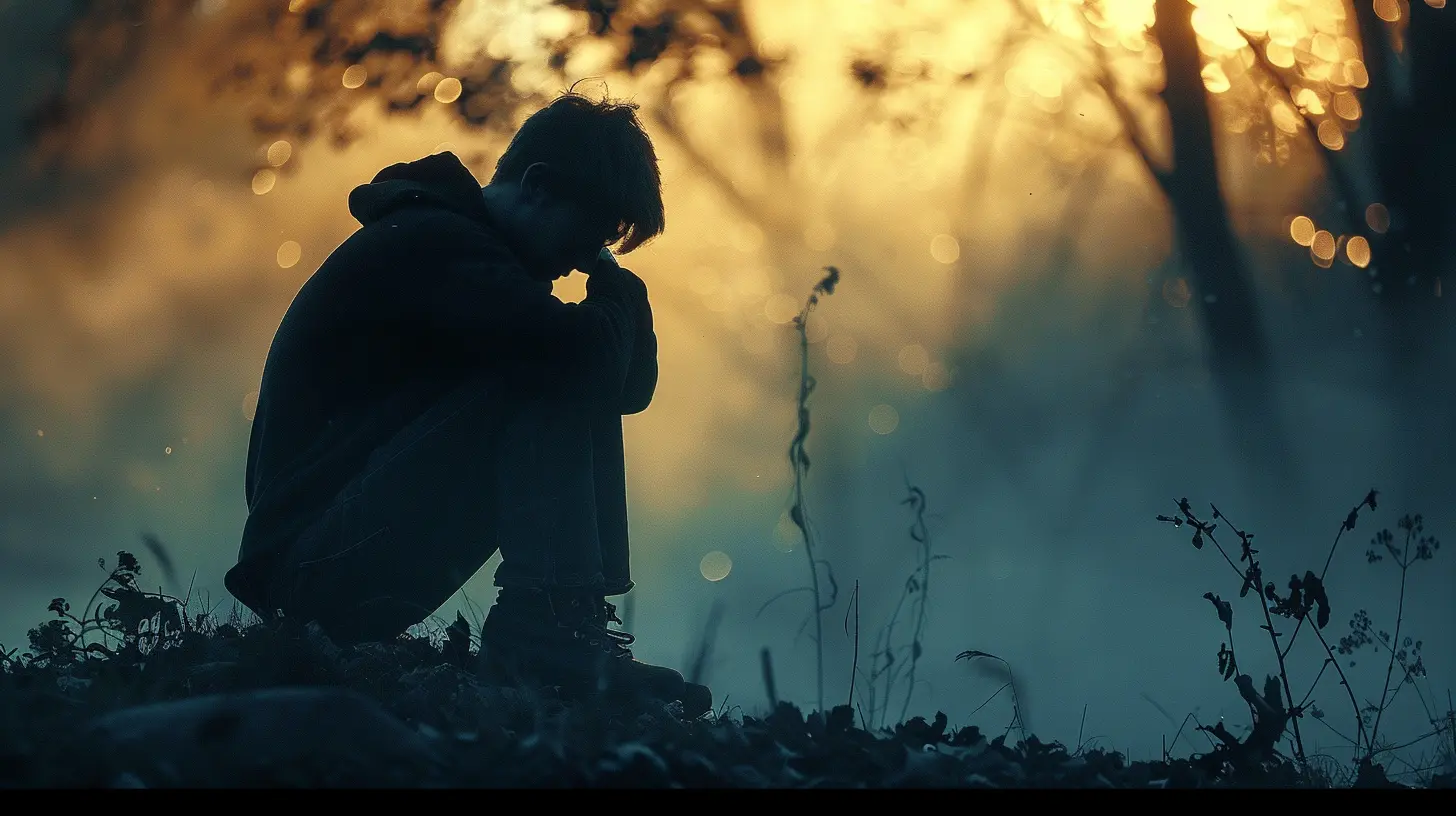How to Cope with the Unexpected Loss of a Loved One
15 October 2025
Let’s face it—nothing really prepares us for the sudden death of someone we love. One moment they’re there, and the next… they’re gone. It hits hard, like a gut punch that leaves you gasping for breath. Whether it’s a parent, partner, sibling, friend, or even a pet, that kind of loss turns your world upside down in an instant.
Grief is messy, unpredictable, and different for everyone. But just because it’s tough doesn’t mean you have to go through it alone or stay stuck forever. In this article, we’re going to talk heart-to-heart about how to cope with the unexpected loss of a loved one. We’ll dive into what grief really looks like, how to care for yourself during your darkest days, and how to slowly find your feet again without pretending everything is okay.
What Grief Really Feels Like (And It’s Okay to Feel All of It)
Grief is like riding a rollercoaster in the dark—you don’t know what’s coming next, and you’re holding on for dear life.You might feel shock, disbelief, anger, sadness, guilt, or even numbness. Sometimes all at once. That’s normal. Your brain is trying to catch up with what your heart painfully already knows: someone you loved is gone, and life won’t be the same again.
> “Why them?”
> “Why now?”
> “I should’ve said goodbye.”
> “If only I had one more day...”
Sound familiar? These are the questions that sneak into your mind—and it’s hard not to let them consume you.
The Stages of Grief Aren’t Linear
You’ve probably heard of the five stages of grief: denial, anger, bargaining, depression, and acceptance. But here's the thing—they're not a checklist. You don’t go through them in order, and you might skip some entirely or go back and forth a dozen times.Some days you’re okay. Other times, a song or a smell brings tears out of nowhere. And you know what? That’s okay. Grief is not a one-size-fits-all experience.
Step One: Let Yourself Feel (It’s Not Weakness)
A lot of people try to "stay strong" for their family or pretend they’re fine to keep up with work and daily life. But bottling things up is like shaking a soda can—you can only hold it in so long before you explode.So, cry if you need to. Scream into a pillow. Write in a journal. Take a walk with your thoughts. Whatever works for you.
Allow yourself to feel. You won’t heal unless you do.
Step Two: Talk It Out
Talking helps. Whether it’s with a close friend, a therapist, a support group, or even your dog—you need to release the weight you’re carrying.Don’t Be Afraid to Reach Out
People may not know exactly what to say, and honestly, that’s okay too. It’s not about perfect words. It's about knowing someone’s there, even in silence.You could say something like:
- “I don’t know how to feel right now. Can I talk to you?”
- “I’m not okay, and I don’t want to pretend I am.”
- “Can you just sit with me for a bit?”
You’re not being a burden—you're being human.
Step Three: Take Care of the Basics (Even When You Don’t Want To)
Grief zaps your energy. Eating feels like a chore. Sleeping becomes a strange mix of exhaustion and insomnia. Even showering can feel like too much effort.But the truth is, your body needs care just as much as your heart right now.
Try This Short Checklist:
- Eat something small, even if it’s just toast or soup.- Drink water. Dehydration makes everything worse.
- Rest. Even if you can't sleep, lie down and close your eyes.
- Move. A short walk can clear your head and release stress.
Taking care of yourself isn’t selfish; it’s survival.
Step Four: Create a Small Routine
When life feels chaotic, structure can be a lifeline.It doesn’t have to be rigid. Just a few small things you can do each day. Maybe it’s drinking coffee at the same time, walking the dog, or writing one sentence in a journal.
Routine offers a sense of normalcy when everything else feels upside down.
Step Five: Honor Their Memory
They mattered. Their life had meaning, and it still does. Keeping their memory alive can be incredibly healing.Some ways to do that:
- Create a memory box with photos, letters, or keepsakes.- Light a candle on special dates.
- Make a playlist of songs that remind you of them.
- Write them a letter when you’re missing them.
- Start a small tradition in their honor—plant a tree, bake their favorite cake, donate to a cause they loved.
Doing these things doesn’t mean you’re stuck in grief—it means you’re carrying their love forward.
Step Six: Give Yourself Permission to Heal
You might feel guilty for laughing again. For having a good day. For smiling.But happiness doesn’t erase love. You’re not “moving on” from them. You’re just moving forward with them in your heart.
Healing isn’t forgetting. It’s learning how to live with the loss in a way that doesn’t destroy you.
And no, there’s no timeline. You don’t “get over” losing someone you love. You just learn to carry it better over time.
What If You’re Struggling More Than Usual?
Sometimes grief turns into something deeper—like depression or anxiety. You might feel stuck in a fog that won’t lift. You might experience panic attacks, lose your sense of purpose, or start avoiding everyone and everything.This doesn't mean you're broken. It just means you might need a little more help—and there's no shame in that.
Therapy can work wonders. A good counselor can help you untangle the complicated emotions you're facing and give you tools to cope.
If you're having thoughts of harming yourself or don’t see a way out—please, reach out. You are not alone, and there are people who want to help you through this.
Navigating Major Life Changes After Loss
Sudden death often leaves behind unfinished plans, unanswered questions, and huge changes in your everyday life. Maybe now you’re the sole caregiver, the only breadwinner, or left with responsibilities you never expected.It’s overwhelming. Take it one day at a time.
Make lists. Ask for help when you can. Tackle one thing at a time instead of trying to fix everything at once. Slow and steady is okay.
Be Gentle With Yourself Every Step of the Way
You’ll miss them forever. That’s the price of deep love. But you can still live a good, full life even with that missing piece in your heart.Some days will be harder than others. You might feel like you’re healing, then suddenly find yourself crying in a grocery store aisle. That’s grief. It sneaks in sometimes uninvited.
So be gentle. Be patient. Give yourself grace. You’re doing better than you think.
Final Thoughts: You’re Not Alone
Losing someone unexpectedly feels like the world stopped—but yours is still turning, even if it’s slower right now.You’re not weak for grieving. You’re not wrong for needing time. And you’re definitely not alone in this.
Reach out. Cry when you need to. Laugh when you can. Remember them with love. And keep going, one breath at a time.
You’ve got this—even if it doesn’t feel like it right now.
all images in this post were generated using AI tools
Category:
Grief And LossAuthor:

Eliana Burton
Discussion
rate this article
1 comments
Eliza McManus
Grieving is a personal journey, and it's essential to honor your feelings without judgment. Remember that it's okay to seek support, whether through friends, family, or professional help. Embrace the memories and allow yourself the time to heal; grief evolves, but love endures beyond loss.
October 30, 2025 at 3:21 AM

Eliana Burton
Thank you for your thoughtful comment. You're absolutely right—honoring our feelings and seeking support are crucial steps in the healing process. Grief is indeed a personal journey, and embracing memories can help us navigate it.


